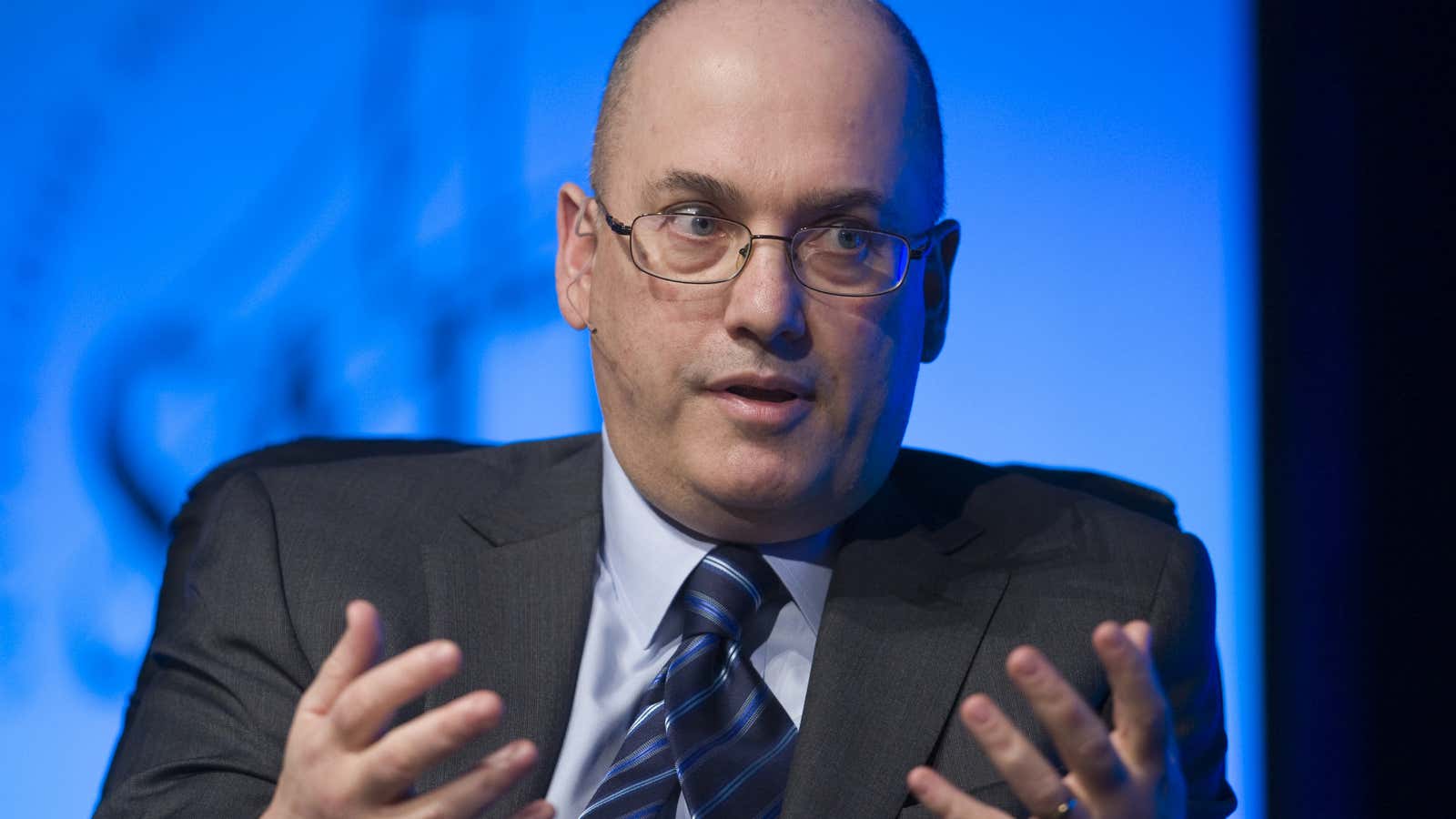The longrunning insider trading investigation of Stephen A. Cohen and his hedge fund, SAC Capital, has finally come to a head.
The US Securities and Exchange Commission (SEC) has charged Cohen with failing to supervise two senior employees and prevent them from conducting insider trading. If found guilty, Cohen could face “financial penalties, a supervisory and financial services industry bar, and other relief,” according to an SEC press release. The charges come just ahead of a legal deadline government was facing to file a suit against Cohen based on the evidence gathered. Other regulatory organizations—such the Federal Bureau of Investigation (FBI)—may still file additional, possibly criminal charges.
The SEC has had a busy day. Earlier today, it rejected an $18 million settlement that its enforcement division had struck with hedge fund investor Phil Falcone and his firm, Harbinger Capital Partners. The SEC accused Falcone of market manipulation, borrowing from client money to pay his taxes, and giving special preference to certain investors.
Together, these incidents seem to amount to a crackdown on high-flying hedge fund managers. According to sources familiar with the proceedings, the SEC rejected Falcone’s settlement specifically because it wouldn’t have barred him from investing in the market or managing money in the future. It did include a two-year ban on raising new capital, but even that ban had loopholes.
The effectiveness of the crackdown remains to be seen. Not only do Cohen and Falcone’s firms boast massive legal teams; the charges levied against them are difficult to prove. For example, proving that Falcone manipulated markets would require demonstrating that, without a doubt, he actually intended his trades to affect the price of securities. That’s tough, because the actions of an investor who’s trying to game the system look remarkably similar to those of one who’s just trying to make a profit. In Cohen’s case, the SEC apparently didn’t have enough evidence to directly accuse Cohen of insider trading. Even if he’s convicted of “failure to supervise,” he might not be barred from the industry.
